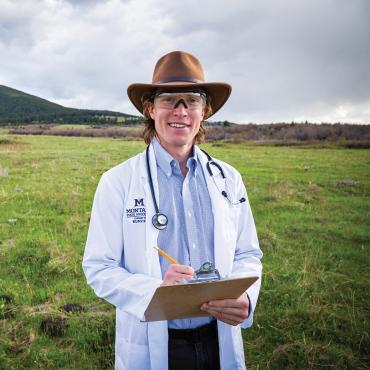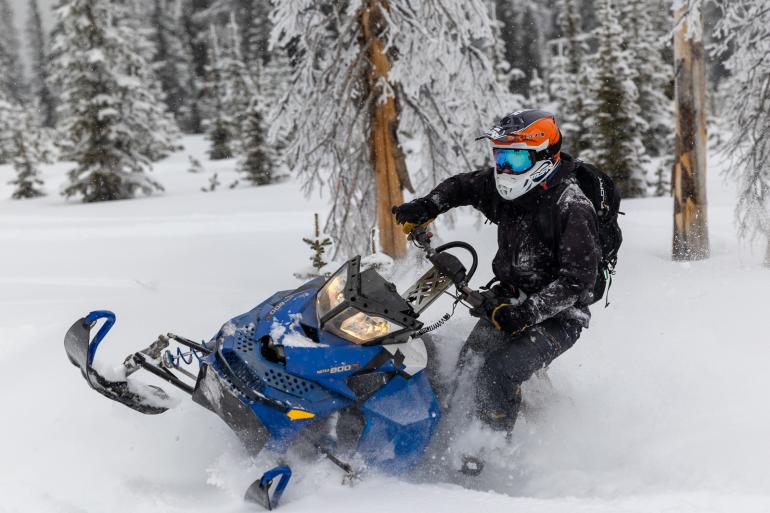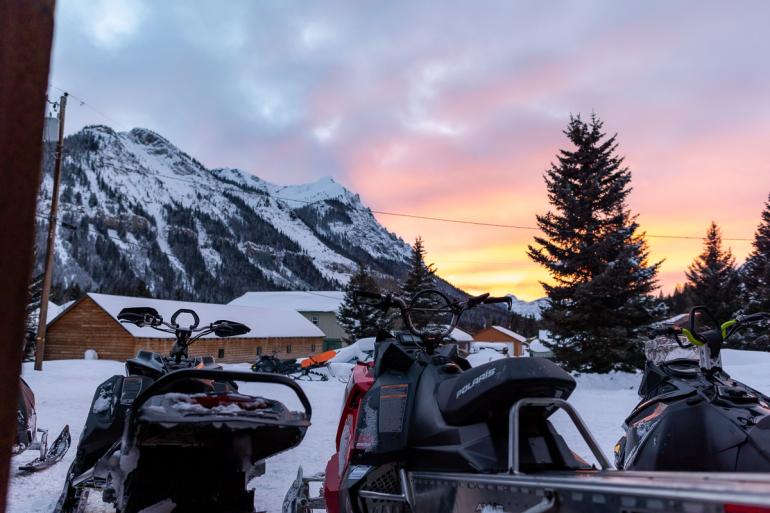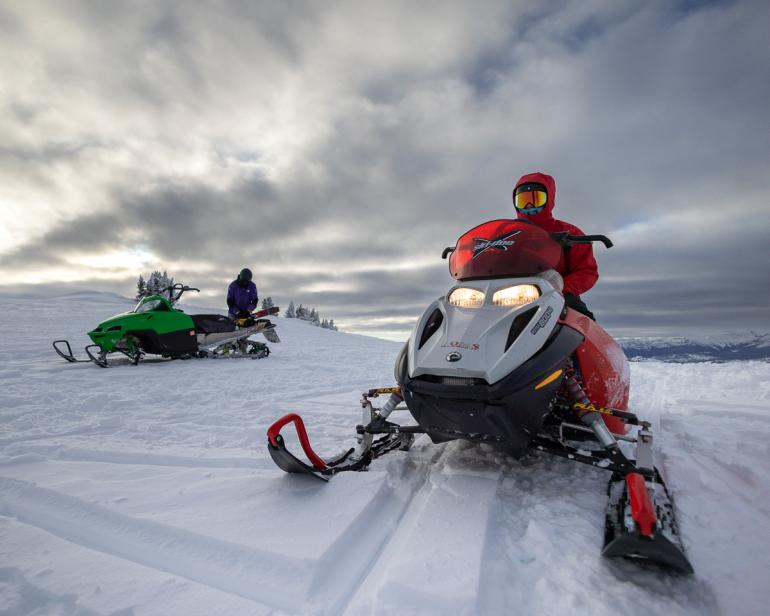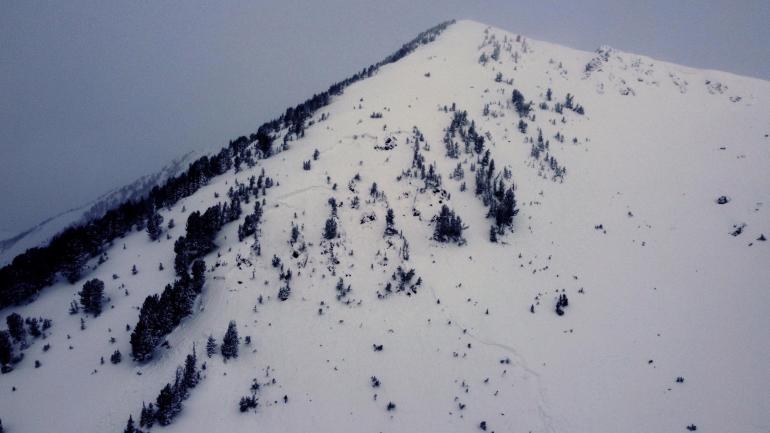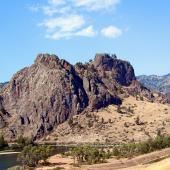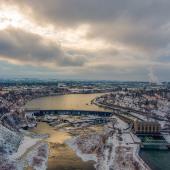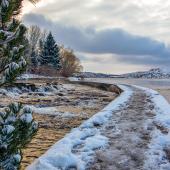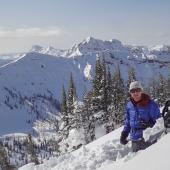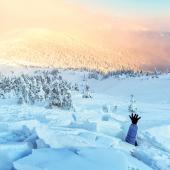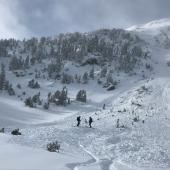Ride Aware
FWP and GNFAC host free avalanche awareness classes in Cooke City.
Just after Christmas of 2021, two snowmobilers were buried and killed in an avalanche on Scotch Bonnet Mountain near Cooke City. They had both gotten stuck on a steep slope at the same time. Two of their friends rode up to assist, but triggered an avalanche. One of the buried victims was dug out after 30 minutes, and another after an hour. Neither was breathing, and CPR was unsuccessful. The avalanche danger forecast for that day was “considerable,” meaning human-triggered avalanches were likely. But nobody in the group had checked the forecast.
In Bozeman, we hear these stories all too often. We are well aware of the danger posed by avalanches, but every year, lives are lost in the mountains. There’s no one to blame—these events are tragic, and for some of us, may have even touched our personal lives. But they are preventable, and there is something to be done about it: spreading awareness and getting education.
For five years after the Round Lake avalanche classes started, there were no snowmobile avalanche fatalities in Cooke City.
Since the winter of 2016-17, Montana FWP and the Gallatin National Forest Avalanche Center (GNFAC) have organized free avalanche-awareness classes at the Round Lake Warming Hut in Cooke City. The hut is a five-mile ride from town on groomed trails, positioned near some of the area’s most sought-after snowmobiling and skiing terrain. The classes are generally taught by volunteers from local snowmobile clubs, and they happen every Saturday during the winter.
The classes at Round Lake are tailored to the specific needs of whoever shows up. They’re more casual and open-ended than formal, accredited courses such as an Avalanche Level 1—not to mention, more affordable. Folks can stop by and spend an hour or two brushing up on rescue skills, or spend the day discussing the local terrain and snowpack with instructors who spend the whole winter in the area.
“It’s really catered to what information they’re looking for and need help with,” says Seth McArthur, director of FWP’s snowmobile program. “We’ve condensed it down so it doesn’t take them a whole day to learn.” This is a key factor in convincing folks to take time away from riding to attend a class, especially those traveling from out of state.
Those out-of-state wintertime visitors are an integral part of Cooke City. One of the town’s business owners says, “We get to know these people—they come in from all over the Midwest—but then we lose them, and we have to take them out in a body bag. And that just couldn’t happen anymore.” It’s a sad scene to imagine. But since FWP and GNFAC stepped in, things have improved.
“What we’ve found is that a lot of people have avalanche equipment, they just don’t know how to use it,” says McArthur. “Every group dynamic is different, but the focus is always how to go out and find their friends, if an avalanche happens.”
We’re moving in the right direction, and the best thing to do is continue the momentum we’ve established in spreading avalanche awareness.
For five years after the Round Lake avalanche classes started, there were no snowmobile avalanche fatalities in Cooke City. In the 2021-22 season there were three, but this may have had something to do with the courses taking a hiatus during the COVID pandemic. “It decreased our personal time with folks. Then last year we lost three people from the Midwest,” says Seth. “We’re hoping that this year, getting back to more hands-on information will translate to more knowledge within these groups.”
Hands-on education depends on the work of volunteers from local snowmobile clubs. “They’re the biggest part of all this,” says Seth. “Without them, we lose a lot more people. Those volunteers are the biggest part of this education program.” Fortunately, Seth says there’s been a steady uptick in volunteers each season, including folks from snowmobile clubs, along with the Friends of GNFAC—the avalanche center's nonprofit affiliate.
You can do your part, too. Helping prevent avalanche fatalities is as easy as spreading the word. Tell people about these free hands-on avalanche classes. Donate to GNFAC's annual Powder Blast fundraiser to help fund more affordable courses. If you’re a snowmobiler, join a local club and find out how you can get involved in avalanche education. Even in the Midwest, snowmobile clubs are providing more resources for avalanche education every year. We’re moving in the right direction, and the best thing to do is continue the momentum we’ve established in spreading avalanche awareness. We can always be safe in the mountains, so long as we have the know-how. Knowing where the education happens is the first step.
For the current avalanche forecast and a list of avalanche courses, head to mtavalanche.com.

